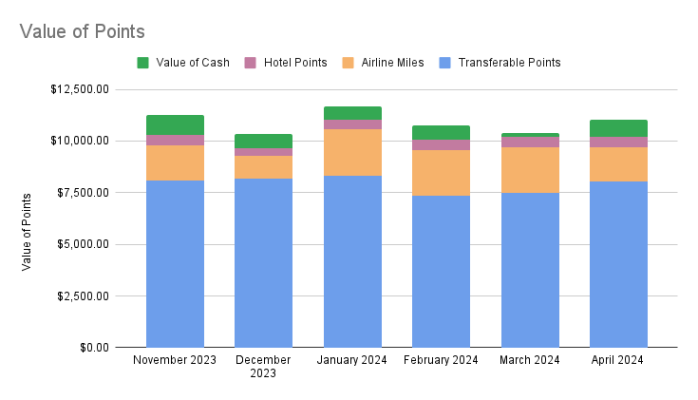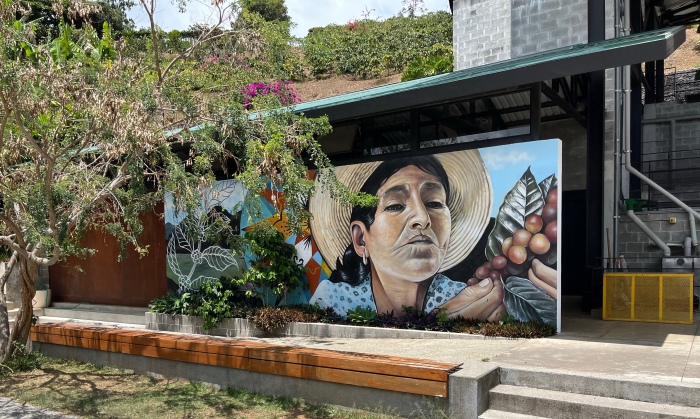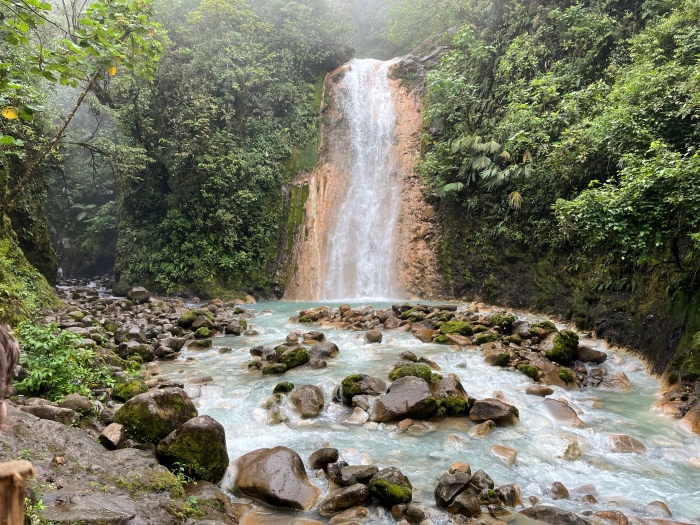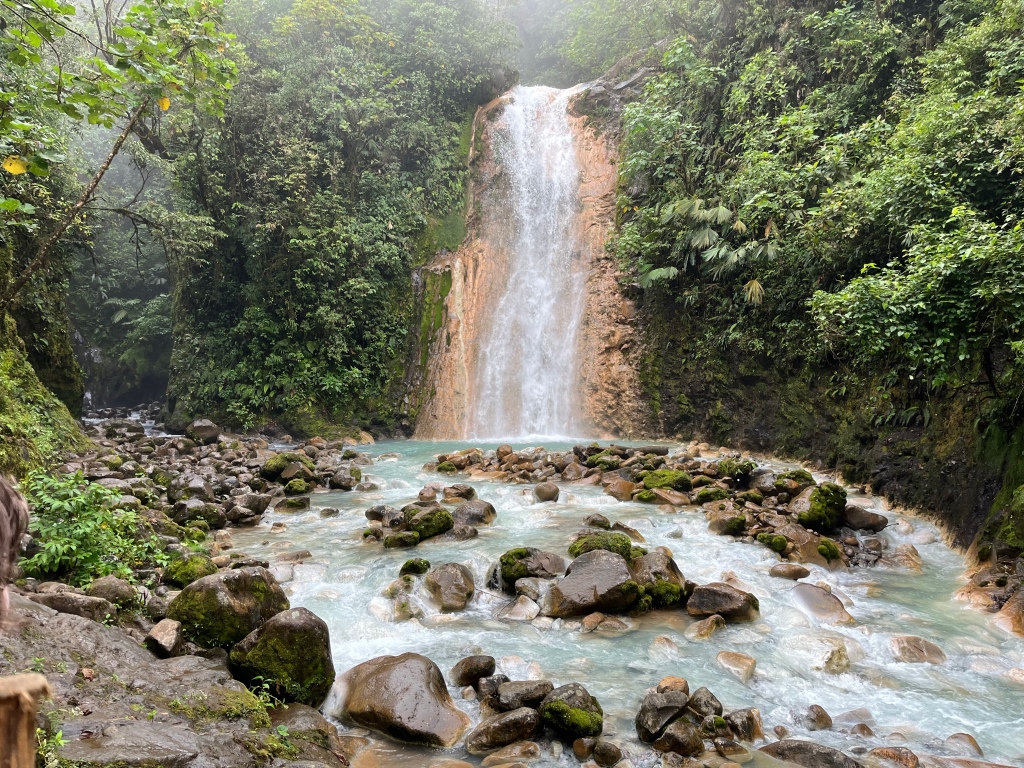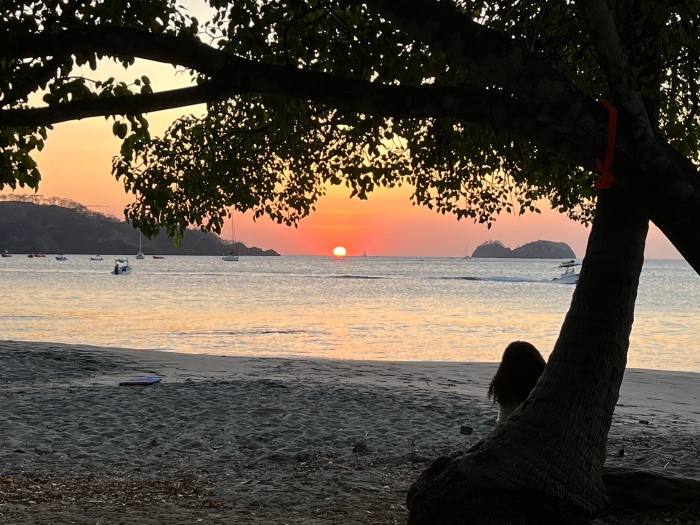“I wish I would’ve traveled when I was young.” How many times have we all heard that lament from either 30-somethings tethered to their children or empty nesters who just lack the energy for the kind of travel they wish they could still do?
The problem with traveling when you’re young is that you’re usually pretty broke and travel isn’t cheap. Travel, however, is a great education for young adults. Travel teaches about other cultures, languages, and most importantly perspective. It also teaches skills such as communication (especially how to communicate without a common language) and self-reliance.
Our kids have grown up around travel because it was always important to us, even if it was just short trips to nearby places. It’s not surprising to me that it wasn’t long after she graduated from High School that my daughter Emma began to plan her own trips. She and her friends recently planned a trip to California for an event taking place in Anaheim.
I’m sure they’ll have a blast and while, as a parent, I’m a little nervous, I understand just how great a learning experience this can be. I also have a sneaking suspicion that this won’t be her last trip, so not only do we want to her to have the skills to travel, but if we can teach her a little about travel hacking along the way so that she can travel cheaply, that’s even better. So, of course, we’re going to help her pick the best credit cards that allow her to do the traveling that she wants to do, but for less money.
This had me doing quite a bit of thinking about what the best credit card for her, and by extension, any young traveler. A word of caution here – Emma is ridiculously careful with her money, if you are a parent of a young adult that isn’t careful with their money, then steering them into credit cards could be a really bad idea.
Building Your Credit Score
One very important thing for any young adult to do is begin to build their credit score. Start by signing up with Credit Karma or another such credit monitoring service. If travel hacking is a future that you want, you need to know, love and cherish your credit score. If you don’t, all of those awesome credit cards with the huge welcome bonuses won’t be an option for you.
There are 6 items that Credit Karma have listed that affect your credit score:
- Payment History
- Credit Card Usage
- Derogatory Marks
- Credit Age
- Total Accounts
- Hard Inquiries
The top 3 items there can pretty easily be maintained well simply by making your payments on time – every time and in full. However, what you should be concerned about when choosing your first or second credit card is developing your credit age.
Credit age is the average length of time that you have had your accounts open. For instance, if you only have one credit card that you’ve had for 8 months, then your credit age is 8 months. If you then get a second card, your credit age will drop to 4 months, since now you have a credit card for 8 months and one for 0 months.
Building a Solid Credit Age with a No Annual Fee Card
In the beginning this doesn’t matter that much, because you have to start somewhere, but what you really want to do at this time is get a credit card that you plan to keep – like forever. I actually have two accounts that are almost 20 years old and they work so well to hold this average up. If you pick the right card early, then you can keep that card for eternity and it can prop up this credit age stat.
This credit card should be a no annual fee card. The reason is simple, lets say you get a different credit card later that earns a huge amount of points and you start thinking that you should close that account because you don’t want to pay an annual fee on a credit card that you just don’t use any more. You either are going to have to keep paying the annual fee or take the hit on your credit score when your credit age drops. If you have a no annual fee card, you can stop using it and keep the card, no big deal.
What should a Young Traveler be Looking for in a Credit Card?
If a young person who wants to travel is looking for a credit card, there are a few things that they should be looking for:
- No Annual Fee
- Good Bonus Earning Categories (In categories they use)
- Achievable Bonus With Low Spend Requirement
- Good Transfer Partners
When it comes to good bonus earning categories, that obviously varies from person to person, but for my daughter, I know her typical spending categories are gas stations and dining. She should be looking for those categories as potential bonus categories.
As far as an achievable bonus with a low spend requirement, getting a card that earns a 60,000 point bonus is great, but if it requires a $4,000 in spend in 3 months, that might be a lot for a young adult to spend. It’s very important to know what is a reasonable amount to spend and don’t go for a card that stretches you financially to reach the sign up bonus. For our daughter, that number is probably no more than $400 per month toward a bonus, so if there is a bonus that is offered after $1,000 spending in 3 months, I think she’d be fine.
Transfer partners are really important if you want to maximize the amount of travel you can do with the points you earn from your credit card spend. By having a great menu of transfer partners to choose from, you can take advantage of any deals that pop up in a variety of programs.
With these things in mind, lets look at a few credit card options for the young traveler, all of which are offered with no annual fee.
Capital One Venture One Rewards
The Capital One Venture One Rewards card offers a generous 20,000 point bonus after only a $500 spend in 3 months. That is a good bonus offer with an achievable amount of spending.
The earning rates are 5x on hotels and rental cars, and 1.25 points per dollar everywhere else. Since I can’t imagine a young person spending a significant amount of money on hotels and rental cars, this is pretty much a 1.25x on everything card – not too exciting.
Capital One does have a great group of transfer partners including 15 airline programs and 3 hotel programs. Of the hotel programs, only Wyndham is interesting, but of there are some interesting airline partners like Avianca Lifemiles, Air France/KLM Flying Blue, Air Canada Aeroplan, British Airways Avios, and Turkish Miles and Smiles.
American Express EveryDay Card
The Amex EveryDay card has a signup bonus of 10,000 membership rewards points after spending $2,000 in the first 6 months. That’s not a great signup bonus, but the $2,000 spend over 6 months should be pretty achievable for most young adults.
This card earns 2x at grocery stores and 1x on everything else. That could be very attractive to someone who spends a large portion of their spending on groceries, but it’s not particularly exciting besides that.
American Express does pack a powerhouse of transfer partners including 11 airline partners and 3 hotel partners. The hotel partners are Marriott, Hilton and Radisson. The airline partners include Air France/KLM Flying Blue, British Airways and Iberia Avios, Virgin Atlantic and most importantly, Delta. Delta doesn’t always have the best redemptions, but they do have a ton of available flights within the US.
The Bilt Mastercard
Bilt is, well, it’s built different. Pardon the pun, but while it doesn’t offer a signup bonus, it offers a feature nobody else can – you can pay your rent with it. If you’re a renter, this card is the biggest no-brainer ever. Why? because you can earn points on what is probably your biggest expense – rent. You only earn 1x on rent, but it’s better than the 0x on rent on every other card. You must make 5 other transactions on the card each month to get the points for the rent, but still, points on rent? That’s crazy!
Aside from 1x on rent, it also earns 2x on travel and 3x on dining. Also, any spending done on rent day (1st of the month) is doubled. Which, for example, would be 6x on dining on the 1st of the month.
Bilt also has some pretty crazy rent day promos. A recent one offered up to a 150% transfer bonus (the actual transfer bonus percentage was based on your Bilt status) on the first of the month to transfer to Aeroplan. That means if you had 10,000 Bilt points and you wanted to transfer it on that day, it would show up as 25,000 miles in your Aeroplan account. The rent day promos are generally announced just a few days before rent day, so if you’re paying attention, you can get some tremendous transfer bonuses.
What’s even better is that Bilt has the best group of transfer partners of any credit card. They have 12 airline and 3 hotel partners. The quality of these partners sets them apart. Not only do they have some of the usual transfer partners like Air France/KLM Flying Blue, British Airways/Iberia/Aer Lingus Avios and Air Canada Aeroplan, but they also have United Airlines.
As far as hotels are concerned, Bilt has Hyatt, Marriott Bonvoy, and IHG. Hyatt is the big one on this list. They consistently have award stays at great redemption rates and Hyatt points are by far the most valuable of any hotel chain.
Wells Fargo autograph Card
The Wells Fargo Autograph Card currently has a 20,000 point bonus when the cardholder spends $1,000 in the first 3 months. That should be pretty achievable for anyone with any sort of normal expenses.
The Autograph Card has some solid bonus categories. They offer 3x on dining, travel, gas, transit, streaming services and phone plans. Looking through that list, that looks like a list of bonus categories that should be pretty great for young adults. I’m not sure how much the average young adult spends on travel, but I have to imagine that the rest of these categories should get used pretty heavily. This card should earn a young adult a lot of points every month.
Prior to an announcement earlier this month, I would have considered the Autograph card to be a cash back card. However, starting April 4th, 2024, Wells Fargo has added transfer partners to this card as well as to the recently launched Autograph Journey card. There are only a few at this point with Air France/KLM Flying Blue, Aer Lingus/British Airways/Iberia Avios, and Avianca Lifemiles for airline transfer partners and Choice Hotels on the hotel side.
Even though there are only 3 programs (6 airlines) in the list of airline transfer partners, they are really good ones. Also, while you might think Choice is a sub-par hotel partner, Autograph Rewards transfer to Choice at a 1:2 ratio. If just look around Choice’s website, it’s pretty common to find hotels between 10,000 points and 20,000 points per night. At that transfer ratio, that becomes 5,000 to 10,000 Autograph Rewards points. That’s a pretty good value for those points.
Wells Fargo has been indicating that these are the initial transfer partners for the Autograph Rewards program and more will be added over time. This should mean that this program should only get better throughout this year and maybe beyond.
Why are there No Citibank or Chase Cards on this List?
The main reason why I didn’t choose any Citibank or Chase credit cards for this list is that both banks require the cardholder to have a premium credit card in order to transfer points. In the case of Citibank, you can earn transferrable Citi Thank You points on a number of credit cards, but you will need to have a Citi Premier card in order to transfer those points to one of the transfer partners in their program.
In the case of Chase, the cardholder must have a Sapphire Reserve card, Sapphire Preferred Card, or a Ink Business Preferred Card in order to unlock the transfer partner benefit. Again, Chase has some great cards to earn Ultimate Reward Points, but without one of those three cards the cardholder can’t transfer those points to one of Chase’s great list of transfer partners.
All of the cards I mentioned above not only have an annual fee, but the signup bonuses on these have some elevated spending (normally something like $4,000 in 3 months) that would be likely be difficult for a young person to achieve.
So which of these Cards is the Best For Young Travelers?
The Capital One Venture One card has a great signup bonus and fantastic transfer partners. However, with all of the ongoing spend being at 1.25x, it looks like there wouldn’t be great opportunities to accumulate a lot of points after the signup bonus.
The Amex EveryDay card has a not very exciting 10,000 point bonus after $2,000 spend. It does offer 2x on groceries and 1x everywhere else, so if groceries are a big expense, this might make sense. American Express also has great transfer partners.
The Bilt Mastercard doesn’t have any signup bonus, but the fact that you can pay rent with this card makes it a great card for any renter. Once you add in the fact that they probably have the best transfer partners and some really exciting rent day specials, this just becomes a must-have card for anyone who pays rent. Hands down, if you pay rent – get the Bilt Mastercard.
If you don’t pay rent, I think the Wells Fargo Autograph Card is suddenly the best choice. Yeah, it has some limited transfer partners, but it has a great signup bonus and 3x categories that hit all the right spots for young adults. I also think the limited transfer partners issue is a temporary thing. Wells Fargo is indicating that there will be additional transfer partners and my guess is that they will roll them out one at a time going forward so to maximize the amount of press they get. This could be one of the best no annual fee cards available by the end of the year.
Conclusion
I think it’s actually pretty important that young people choose wisely when getting their first credit card. The impact on credit score of having a credit card with a really long history means that picking a credit card that you will continue you to use for a long time is very important. It’s very important to make that credit card something that you aren’t tempted to close.
Assuming that the person applying for the account likes to travel, I think the answer is pretty clear – go with the Bilt Mastercard if you pay rent and the Wells Fargo Autograph card if you don’t pay rent. Just make sure that you pay your balances in full every month, and enjoy your travels!

